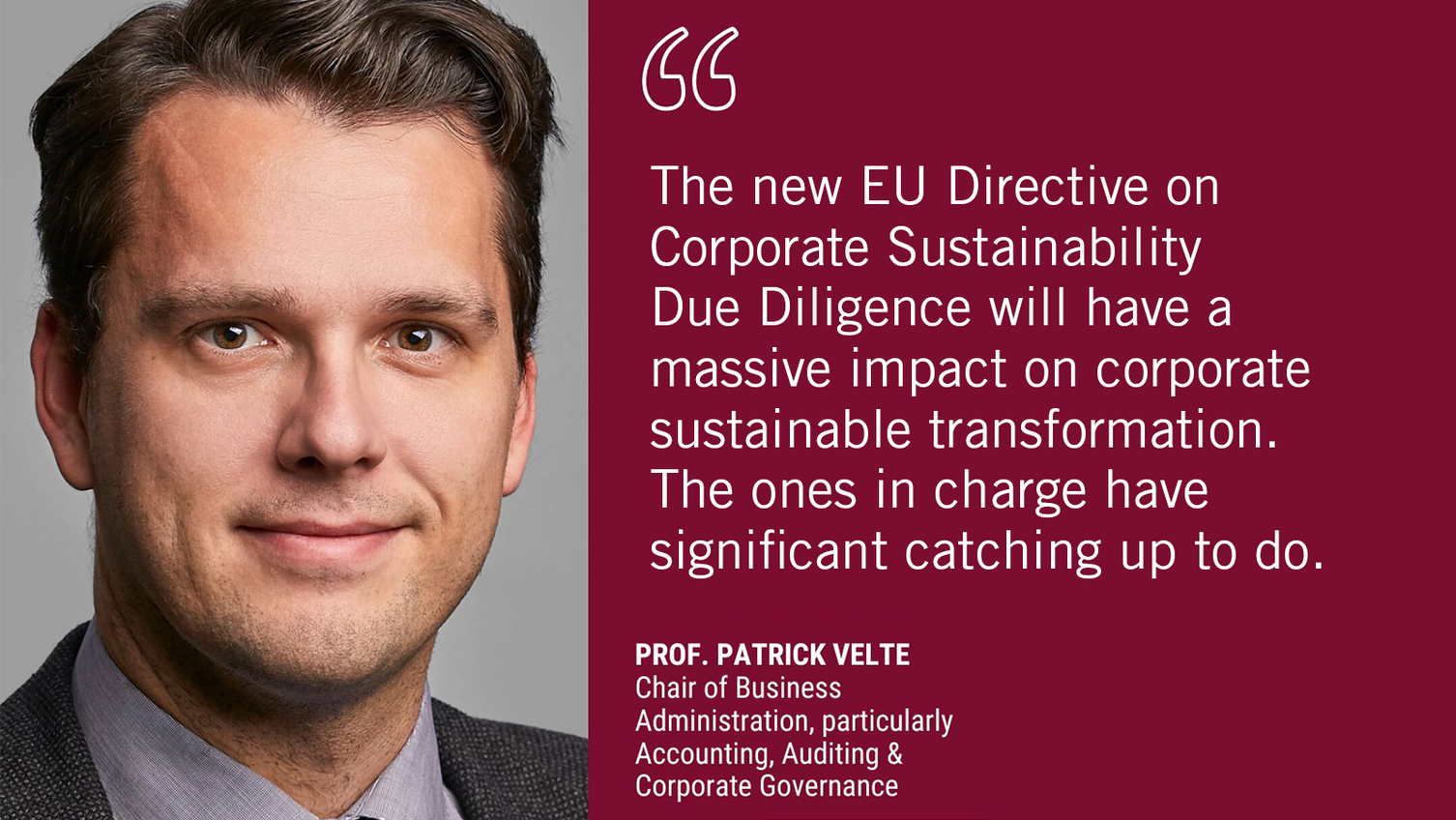"The European Supply Chain Act is now significantly intervening in the market!
2024-06-05 On May 24, after long controversies, the EU Council passed the Corporate Sustainability Due Diligence Directive, CSDDD or CS3D in short. Professor Patrick Velte, holder of the Chair of Business Administration, particularly Accounting, Auditing & Corporate Governance at the School of Management and Technology, closely followed the process. When the new directive was on the brink of failure, he, along with around 100 international researchers, published an appeal for its adoption. In our '3 Questions to' section, he summarizes the developments and concludes that the German economy, among other things, has a lot of room for improvement in sustainability reporting."
Prof. Velte, in the past few weeks, both the EU Parliament and the EU Council finally passed the new Corporate Sustainability Directive. Are you satisfied with the outcome?
Ultimately, I am pleased that both the Parliament and the Council adopted the CS3D before the European elections on June 9. However, significant changes were made compared to the trilogue version 23, which was the negotiated version between representatives of the Commission, the Parliament, and the Council, to reach a political compromise. The CS3D applies to far fewer companies than initially thought, such as corporations and commercial partnerships with an average number of more than 1,000 employees and a worldwide net turnover of more than 450 million euros. Estimates suggest this affects only around 5,400 companies across Europe. Originally, the CS3D was supposed to cover companies with more than 500 employees and, in certain risk sectors like textile manufacturing, leather, or agriculture and forestry, companies with more than 250 employees. Many companies are now no longer affected by the new directive.
A few months ago, along with your colleagues Anne-Christin Mittwoch and Matthias Birkholz, you initiated an online appeal that was signed by over 100 renowned European scientists. You and your colleagues feared the rejection of the CSDDD by the EU Council. What are your main arguments for the implementation of the directive?
For the first time, companies must consider environmental and social due diligence obligations along their value chains and implement solid sustainability-related risk and compliance management systems. This makes the CS3D significantly more far-reaching compared to the new German Supply Chain Act, which applies to companies with 1,000 or more employees regardless of revenue size but leaves breaches of due diligence without consequences for management.
With the CS3D, the important goal of achieving climate neutrality by 2050 can also be realized. The directive thus forms a strong component of the EU Green Deal project, alongside the EU Taxonomy Regulation and the Corporate Sustainability Reporting Directive (CSRD). Moreover, it is the first cross-sectoral legislation for sustainable corporate governance in the EU, at least concerning risk and compliance management.
Company executives are now required to develop and implement a transition plan to mitigate climate change in accordance with the Paris Agreement and the EU Climate Law. Consequently, the European Supply Chain Act strongly intervenes in the regulation of corporate governance, demanding a business model that drives the transition to a more sustainable economy. Companies must report on this every twelve months, necessitating science-based climate strategies and targets. The challenges are enormous.


